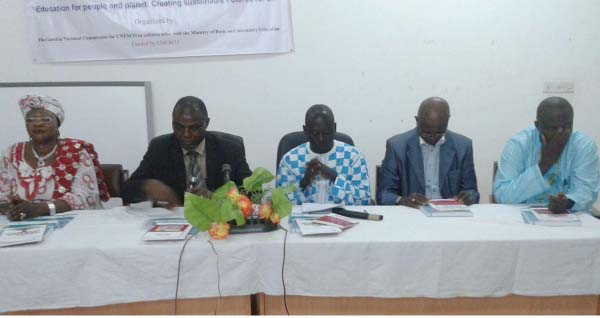
The
Gambia National Commission for UNESCO in collaboration with the Ministry of
Basic and Secondary Education (MoBSE) yesterday launched the Global Education
Monitoring report at the Regional Education Directorate, Region 1, Kanifing.
The
launching ceremony was to share with stakeholders the report’s findings and
initiate discussions with the education and development community in The
Gambia, and other stakeholders, of the central role of education in achieving
the Sustainable Development Goals (SDGs).
Since
2002, UNESCO has been publishing evidence-based annual reports to monitor
progress towards the education-related Millennium Development Goals.
Starting
in 2016, a newly-mandated series of reports entitled the Global Education
Monitoring (GEM) reports monitor the state of education within the new
framework of the 2030 Sustainable Development Agenda.
The
first report in the new series, the 2016 GEM Report, focuses on the theme of
‘Education for people and planet: Creating sustainable futures for all’. The report discusses the trans-versality of
education in the SDGs and beyond.
The
theme of the 2016 report is ‘Education, sustainability and the post-2015
development agenda’.
Speaking
at the launching ceremony, Lily Neyestani Haile of the UNESCO Regional Office
in Dakar, said the report is based on evidence in the education sector.
Permanent
Secretary, Ministry of Higher Education, Research, Science and Technology,
Ebrima Sisaho, said the 2016 report establishes a monitoring framework and
discusses key financing challenges.
The
report assesses post-2015 developments in governance, financing and
inter-sectoral integration that have implications for research and policy in
education.
PS
Sisaho noted that the 2016 report focuses on the complex interrelationships
between education and key development sectors.
It also determines which education strategies, policies and programmes
are most effectively linked t

